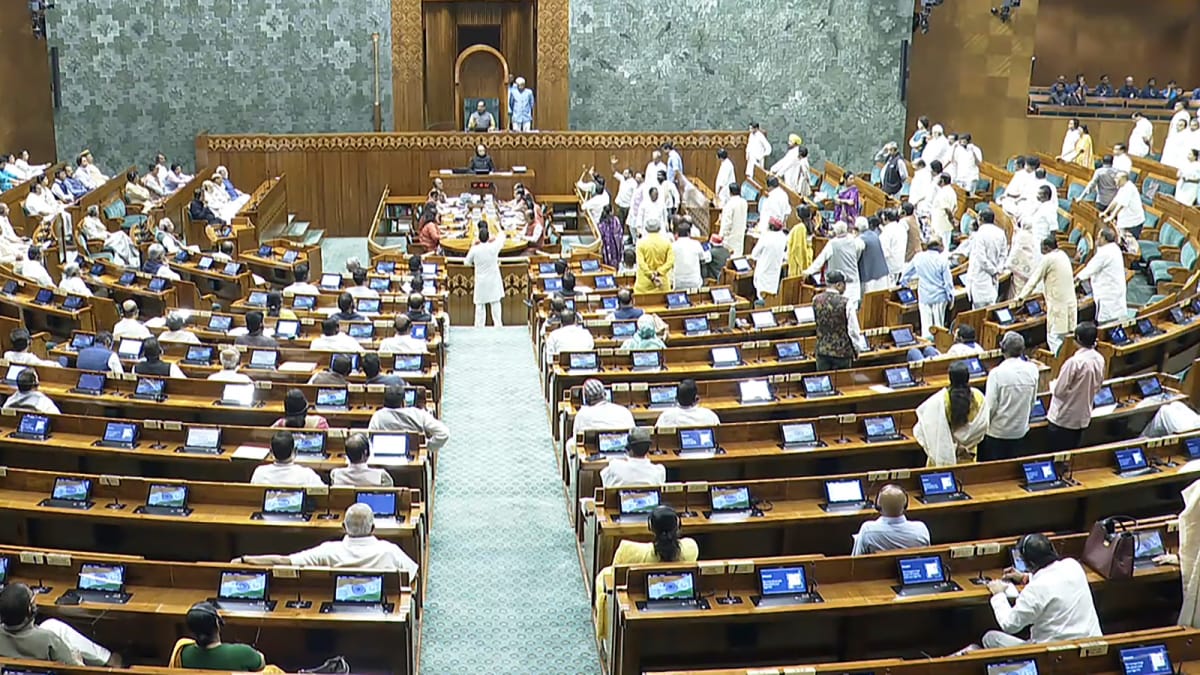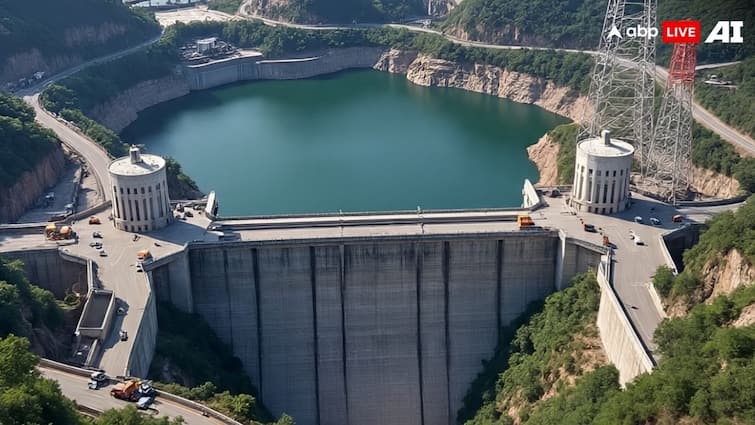- January 29, 2025
JPC Waqf Report Set For Adoption By Panel On Wednesday Amid Oppn MPs Planning Legal Action, Dissent Notes – News18

Last Updated:
Most of the opposition MPs are not happy with the bill in its present form and have accused the government of brazening it out because of its majority
Opposition MPs from the joint parliamentary committee on the Waqf Amendment Bill. (File photo/PTI)
The joint parliamentary committee reviewing the Waqf bill circulated a 655-page report on Tuesday, incorporating 14 amendments. Following this, on Wednesday, the committee would meet again to adopt the draft report.
One of the most widely debated issues in the JPC meetings has been the proposal of the government in its legislation to end “waqf by user”, which the opposition constantly tried to explain was the government’s intention to take away the control of these properties that could only be given for the use and help of the Muslim community.
In its report, the panel has suggested, “Regarding the amendments proposed in the definition of waqf, the Committee have observed that the proposed omission of ‘waqf by user’ through Clause 3(ix) (b) of the Amending Bill, have created apprehensions among various stakeholders and the Muslim community at large regarding the status of the existing ‘waqf by user’ which largely includes properties used for religious purposes. The Committee, in order to evade such apprehensions, propose that a proviso clearly specifying that the omission of ‘waqf by user’ from the definition of the waqf will apply prospectively, that is, the cases of existing waqf properties already registered as ‘waqf by user’ will not be reopened and will remain as waqf properties, even if they do not have a waqf deed. This would, however, be subject to the condition that the property wholly or in part must not be involved in a dispute or be a government property. Accordingly, the following amendment to Clause 3(ix) is proposed: (e) the following proviso shall be inserted, namely:- Provided that the existing waqf by user properties registered on or before the commencement of Waqf (Amendment) Act, 2024 as waqf by user will remain as 56 waqf properties except that the property, wholly or in part, is in dispute or is a government property.”
In its recommendation, the committee has elaborated that no action or cases in case of such waqf by the user will be done in a retrospective manner. This was one of the amendments proposed by a BJP ally at the Centre and in Andhra Pradesh, the Telugu Desam Party.
The Delhi Waqf Tenants Welfare Association, which had deposed before the panel, had sought protection from the committee through the revised bill to not call them encroachers. The tenants have been working out of the shops generation after generation, paying rent, paying for the timely maintenance and repair of the facility, paying the upgraded rent every now and then, paying house tax in some cases, and also paying huge amounts of donations to the Waqf Boards.
10 to 12 lakh is the number of tenants under the various Waqf Boards all over India, and in Delhi, there are around 2,600 such tenants, they’ve told the panel. Taking a humanitarian view of the situation, the committee has recommended the government incorporate appropriate laws for their protection. The recommendation of the panel reads, “In light of the submissions made by the tenants’ associations regarding their long-standing association with Waqf properties, the Committee emphasizes the need to address their concerns compassionately during the formulation of Lease Rules. Recognizing these issues will provide legal certainty for tenants’ associations and establish fair oversight to prevent abrupt or unreasonable decisions by Waqf Boards. Such measures will reduce uncertainty and ambiguity, mitigate the impact of sudden rent increases, and alleviate fears of sudden eviction. Furthermore, fostering a symbiotic and harmonious relationship between Waqf Boards and tenants will ensure the prosperity of Waqf properties. The Committee, therefore, recommend that the Ministry may consider the concerns of Waqf tenants across the country and introduce laws that allow for long-term leases to safeguard their legitimate rights.”
The Dawoodi Bohra community had also deposed before the panel through noted legal luminary Harish Salve. In the bill, which was brought by the government in August last year, it was recommended that a special Waqf Board be made for the community. The Dawoodi community, in the deposition, had extensively argued that most of their properties are governed under trust, so they do not need control by the Waqf Board.
In a relief to the Dawoodi Bohra community, the panel has recommended, “Committee agree with the submissions made by the Dawoodi Bohra and Aghakhani Communities which although parts of the larger Shia Muslim Community, have a distinct set of religious doctrines and practices. As a minority within the Shia community, the Dawoodi Bohras follow a unique governance system that revolves around the religious authority of the al-Dai al-Mutlaq. In this respect, the Ministry have suggested for amendments in Section 2 of the Principal Act by providing that this Act shall not apply to a trust established by a Muslim under any law for the time being in force. Consequently, the Committee recommend that the following proviso may be inserted in Section 2 of the principal Act: Provided further that nothing in this Act shall, notwithstanding any judgement, decree or order of any court, apply to a trust (by whatever name called) established before or after the commencement of this Act or statutorily regulated by any statutory provision pertaining to public charities, by a Muslim for purposes similar to a Waqf under any law for the time being in force.”
The omission of section 108 of the original Act, which provided for the powers of the Waqf Board and its tribunal to be the highest authority, hasn’t gone down too well with the opposition, and they are likely to resist this in a big way. The present report says that in case of a dispute, the aggrieved party can go to court to seek relief, and the decision of the tribunal is not final and binding.
As regards a lot of voices against empowering a Collector in place of a Survey Commissioner, which the opposition said would be a denial of justice in the case of Waqf properties – the same person cannot be the complainant and cannot be the judge in the same case – the committee has taken into consideration and recommended, “In the newly proposed Section 3C(2), after the words ‘Government property,’ for the words ‘the same shall be referred to the Collector having jurisdiction who shall make such inquiry as he deems fit’, the words, ‘State Government may by notification designate an Officer above the rank of Collector hereinafter called the designated officer, who shall conduct an inquiry as per law,’ shall be substituted.”
It is understood that most of the opposition MPs, who are not happy with the bill in its present form and have accused the government of brazening it out because of its majority, are all set to provide dissent notes on the bill. It is learnt that noted lawyer and Lok Sabha member from DMK and former union minister A Raja may even consider taking the legal route against the bill. “We will go to the Supreme Court and seek relief. The brazen use of numbers for an ill-conceived legislation like this is an abuse of power by the chairman and his party. It is even more shameful that the so-called secular parties like JDU, TDP, and even Ram Vilas Paswan’s party have maintained absolute silence on the bill and its intent,” Raja told CNN-News18.
Asaduddin Owaisi, another member of the opposition and someone who has moved amendments against all the clauses in the bill, is also preparing a detailed dissent note. Against the 650-plus-page report, these two are expected to give dissent notes that will run into at least 50 to 60 pages.
Based on the written and oral depositions of both official and non-official witnesses, inputs gathered during the study visits, and a large number of memoranda received from various sources, the committee has examined the bill. The first meeting of the committee took place on August 22, 2024, after the bill was referred to it on August 9, 2024.
More than 112 hours have gone into the discussions on the bill. A total of 284 stakeholders have been consulted, including 49 in Delhi and 155 during study tours. Twenty-five state Waqf Boards and 15 state government representatives have deposed before the panel. Eight MPs, seven MLAs, and five state ministers have deposed before the committee. Five minority commissions have appeared as witnesses.
On the front of public opinion being sought by the JPC, 92.28 lakh emails and 4.99 lakh physical representations have been received.







